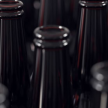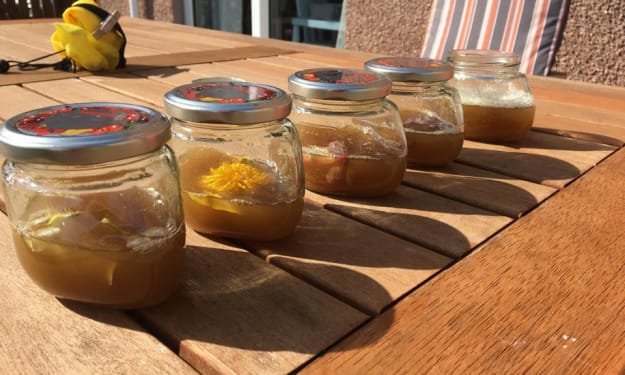Vegan Friendly? Think Before You Drink That Beer
Not all beer is vegan friendly

If you read this article, you may be a vegetarian or a vegan and like beer. To you I say: Read on!
Beer unites us in many more ways than we would imagine at first. We love to sit around a table, talk, connect and enjoy a glass. Whether we differ in the things we enjoy in life or the values we hold dear, we can find common ground on the minor things, such as a nice beer. Whether you are a full-blown carnivore, vegetarian or vegan, you should be able to enjoy a pleasant drink right?
Wrong. Beer makers do not always create their beverage with the vegan philosophy in mind.
While people that eat meat products can happily drink and enjoy their beer, the situation is rather different for vegans and some vegetarians. Vegans and some vegetarians do not consume foods, or drinks, made with the use of animal by-products. Most people will say that beers do not contain any animal products. Some brewers, however, still use animal-derived materials for beer production. Below you will find why and how this is the case.
At first glance, you may think the use of grains, malts, and hops renders a beer perfectly suitable for a vegan. All the ingredients used for beer making are plant-based, and for that reason, perfectly suitable for vegetarians. Besides plant materials, brewers use yeast to ferment (convert) sugar and turn it into alcohol and a range of other metabolites. For most people, the use of yeast (tiny animals in principle), in beer productions is not a problem. Both vegetarians and vegans will drink beer with the understanding that no harm .
Ingredients vs process
Beer production is more than mixing your ingredients and watching yeast do its magic. There are other processes involved, some of which require the use of additives. Most brewers will tell you that when a batch of beer has ceased fermentation, a lot of byproducts are present. Yeast slurry, containing both live and dead yeast material, are chief among unwanted residues together with a range of other organic compounds such as sulfides, polyphenols and proteins. The removal of such compounds can improve beer clarity and profile, and for this reason, brewers use clarifying agents to produce crisp drinks.
What are these fining agents? I have listed them below with a few comments. Some of these agents are in disuse now. In fact, some are banned:
Old-style fining agents.
Egg whites. Speaks for itself, but they used these products in the past for the removal of organic compounds.
Blood. Wait, what?!? Luckily, they banned blood (powder) in wine making after the mad cow disease debacle. It never featured in the beer brewing industry. You can find blood residue, however, in the old (over 25 years) red wines.
Milk. Not used very much as a fining agent. As noted below, however, a milk-derived product (casein) is still used to clarify beer.
Contemporary fining agents.
“Contemporary” is appropriate here since some fining agents around today were in use in the early days of commercial beer production. Some of the animal derived agents have been listed here.
Isinglass. Made of fish bladder, isinglass comprises a type of collagen that is used to help yeast fall out of solution. Yeast cells clump together to form a jelly-like mass that easily falls and sticks to the bottom of a vessel. Interestingly, the British brewing industry widely uses isinglass in cask-aged beers (ales). If you visit a pub and order a cask-ale, it would not hurt to ask what fining agent they use.
Casein. Casein occurs in milk. Because it is so abundant in cow milk, it has become the major source of casein used in beer production. Casein helps beer clarify.
Gelatin is a form of collagen that is extracted from animal parts. Collagen mode of action is like isinglass.
Luckily and with veganism in mind, most brewers have adopted practices that are vegan friendly. There is a wide range of fining agents out there suited to get that crisp beer that vegans and vegetarians can enjoy. The internet also has a useful set of resources that can help the consumer decide whether a beer (or any other drink) is suitable for consumption. For beer, wine and liquor, Barnivore offers an excellent database where you can find out whether your favourite beverage is vegan friendly.
So, if you are a vegan or vegetarian, consider doing some homework before drinking a commercial beer. Especially if these are (cask-aged) ales or refer to animal products (e.g. milkstout). I hope this article will help you inform future decisions.
If you found this article useful consider subscribing to my newsletter (with a 50% discount) or send me tip. Every little helps!
CHEERS!
Edgar @ The Beer Collection
About the Creator
Brewingbrowser
Science powers delicious beer making. To subscribe to our free newsletter, please join here: https://brewingbrowser.com






Comments
There are no comments for this story
Be the first to respond and start the conversation.